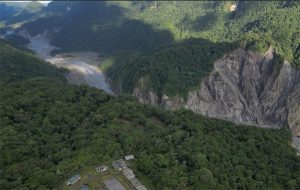
The sudden increase in demand for lithium has caused a 750% increase in the price of the metal since early 2021, reports the Wall Street Journal. With the countries of the Lithium Triangle—Argentina, Bolivia, and Chile—holding about 65% of the world’s lithium reserves, there is opportunity for significant economic growth and development if these countries are able to take advantage of the growing demand for the metal. However, as global demand currently outpaces supply, each country of the Lithium Triangle is struggling to produce the metal at their respective expected levels. According to the Financial Times, “lithium’s use in batteries has allowed it to escape the recession-driven decline that has hit many other commodities in recent months,” demonstrating the industry’s current stability while highlighting the challenge of availability as demand grows beyond production capabilities.
Chile, the country with the world’s largest reserves of lithium, has only two producers of the metal and has not opened a new mine in 30 years. Chile also faces pressure from indigenous and environmental activists to better control lithium production, who fear irreparable damage to the land and its people given the intense extractive process and its effects on the water supply. As explained by Time, Chile’s laws and regulations also pose an obstacle as the country struggles to become the world’s largest lithium producer. President Gabriel Boric campaigned on his intention of creating a national lithium company that will “cover activities from exploration and exploitation of the mineral to manufacturing.”
Bolivia’s former president Evo Morales nationalized the lithium industry in 2008, though production has been slow to get off the ground. According to the Wall Street Journal, Bolivia produced the same amount of lithium in the entirety of 2021 that Chile produced in just a day and a half, with experts blaming a lack of technology and know-how for the low production levels. Bolivia’s lithium deposits are also seen as lower quality and harder to exploit due to lower concentrations of the metal. The government recently accepted proposals from external companies that would help the country achieve commercial lithium production, but as Reuters notes, no announcement on the selected company has been made.
Of the three countries of the Lithium Triangle, Argentina is the most open to private investment for commercial lithium production, though its volatile economic circumstances often deter foreign investment. Its energy infrastructure is also likely incapable of powering all of its intended new lithium projects. Argentina has only two mines that are currently operational, but there are 13 more in the works and additional plans are in consideration for the coming years.

Argentina
- In a move set to comply with its IMF program, Argentina is set to cut subsidies on gas, electric, and water bills, with payment increases dependent on income, according to Buenos Aires Times.
- Córdoba’s judiciary was subjected to a ransomware attack on Saturday by “PLAY,” writes Clarín. It appears that the operation’s goal was to wipe the system clean, and the system has since been restored.
- Given Argentina’s high levels of domestic food production, it is “one of the best places to survive” a potential nuclear war, reports Página 12.
Brazil
- Both Lula and Bolsonaro are fighting for the country’s evangelical vote ahead of the October elections, notes The Washington Post. Evangelicals are now roughly 30% of the electorate, and the population has more than doubled in the last two decades, becoming a key voting bloc.
- Alexandre de Moraes was inaugurated as head of the country’s Supreme Electoral Court last night. He delivered a speech praising the country’s electronic voting system, reports Folha.
Caribbean
- Bahamian Prime Minister Philip Davis believes that Caribbean nations must be unified in pushing for climate financing from wealthier countries at COP27 climate talks in Egypt during November. (Euronews)
Chile
- Water rights are held privately in most Chilean cities due to the commercialization of water under the Pinochet dictatorship, but rural areas are seen as unprofitable by the private sector, leaving their water under the control of the state. Now, “local leaders of the Rural Sanitation Services (RSS) warn that the digging of illegal wells by large agro-export companies in Chile is aggravating the effects of drought and threatening drinking water supplies and social peace,” writes the Inter Press Service.
Colombia
- Petro’s election stirs hope among the country’s campesinos, as the long-neglected rural voters demand participation in drafting Colombia’s agrarian policies, writes NACLA.
- “Corrupt officials in Colombia allegedly abused their positions to steal hundreds of millions of dollars in peace accord implementation funds, which were meant for some of the country’s poorest, most violent, and least governed territories,” explains WOLA.
- Colombia Risk Analysis published a special report on the likely steps the Petro administration will take to continue to implement the country’s 2016 Peace Accords.
Ecuador
- President Guillermo Lasso has declared a state of emergency in Guayaquil following the bomb attack this past weekend, reports The Guardian.
El Salvador
- El Salvador’s state of exception, officially renewed for a fifth time yesterday, has now resulted in 50,000 arrests as a part of the government’s “war” against gangs, notes DW.
Mexico
- La Guelaguetza, a Oaxacan music and dance festival, was the backdrop for a protest for government complicity in femicides, the term used for women who have been murdered because of their gender, reports NACLA.
- “Driven by Mr. López Obrador’s long-held goal to wrest control of the energy sector from private companies and allow state firms to dominate the market, the government is undermining efforts to expand renewable power and staking the nation’s future on fossil fuels. The policy is central to Mr. López Obrador’s ambition to reverse what he sees as corrupt privatization of the industry, guarantee Mexican energy sovereignty and return the country to the glory days when oil created thousands of jobs and helped bolster the economy,” writes The New York Times.
- Insecurity is having an effect on Mexico’s petrol industry, including thefts of equipment, notes Reforma.
Peru
- Peruvian governors have released a statement in favor of hosting the country’s 2026 presidential and parliamentary elections early, reports Telam.
- Informal employment has reached a record for the year, with 9.7 million informal workers in the country, according to Infobae.
Uruguay
- Uruguayan President Luis Lacalle Pou has a 74% approval rating, the best in the region, reports MercoPress. He also has the best disapproval rating, at just 14%.
- Uruguay is attempting to increase its efforts to tackle illegal, unreported, and unregulated (IUU) fishing, notes Diálogo Américas, with the Navy having captured a Chinese ship for such activities.
Arianna Kohan y Jordi Amaral / Latin America Daily Briefing
http://latinamericadailybriefing.blogspot












